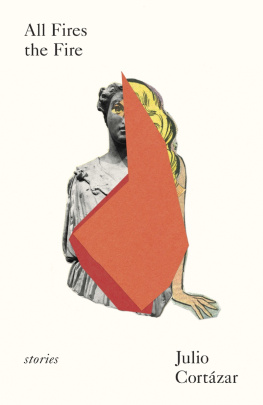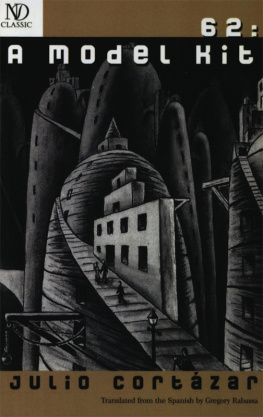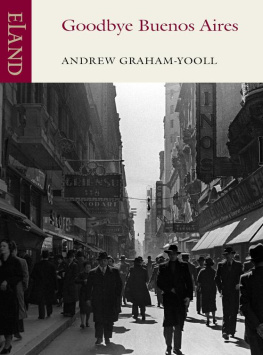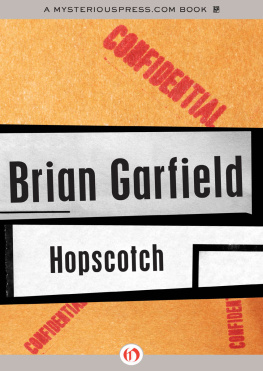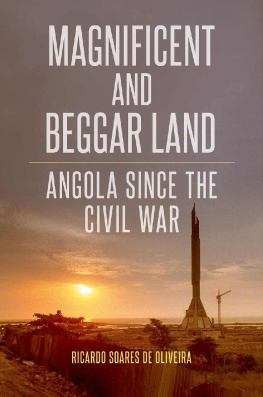



Copyright 1966 by Random House, Inc.
All rights reserved under International and Pan-American Copyright Conventions. Published in the United States by Pantheon Books, a division of Random House, Inc., New York, and simultaneously in Canada by Random House of Canada Limited, Toronto.
Originally published in Spanish as Rayuela, by Editorial Sudamericana Sociedad Annima. Copyright 1963, by Editorial Sudamericana Sociedad Annima. 1967 Julio Cortazar
This translation first published in the United States by Pantheon Books, a division of Random House, Inc., and in Great Britain by William Collins Sons & Co. Ltd., in 1966.
LIBRARY OF CONGRESS CATALOGING-IN-PUBLICATION DATA
Cortzar, Julio.
Hopscotch.
(Pantheon modern writers series)
Translation of: Rayuela.
I. Title II. Series.
PQ7797.C7145R313 1987 863 86-25347
ISBN 0-394-75284-8
eBook ISBN: 978-1-101-87014-3
The selection from Lawrence Ferlinghetti, A Coney Island of the Mind, is reprinted with the permission of the publisher, New Directions. Copyright 1958 by Lawrence Ferlinghetti.
v3.1
Contents
In its own way, this book consists of many books, but two books above all.
The first can be read in a normal fashion and it ends with Chapter 56, at the close of which there are three garish little stars which stand for the words The End. Consequently, the reader may ignore what follows with a clean conscience.
The second should be read by beginning with Chapter 73 and then following the sequence indicated at the end of each chapter. In case of confusion or forgetfulness, one need only consult the following list:
And moved by the hope of being of particular help to youth, and of contributing to the reform of manners in general, I have put together this collection of maxims, counsels, and precepts which are the basis of those universal morals that are so much a part of the spiritual and temporal happiness of men of all ages, states, and conditions, and of the prosperity and orderliness not only of the civil and Christian republic in which we live, but of any other republic or government that the most thoughtful and serious philosophers of the world might wish to contrive.
Spirit of the Bible and Universal Morals,
Drawn from the Old and New Testaments
Put down in Tuscan by the Abbot Martini
with footnotes
Rendered into Castilian
by a member of the Regular Clergy of the
Congregation of San Cayetano of this Court
With permission
Madrid: Aznar, 1797
Everytime it starts to get cool, I mean in the middle of autim, I start gettin nutty ideas like I was thinkin about what was forein and diffrent, like for exsample how Id like to turn into a swallow and get away and fly to countrys where it gets hot, or be an ant sos I could get deep into a cave and eat the stuff I stored away durin the summer or be a snake like what they got in the zoO, the ones they keep lockt up in glass cages thats heated sos they dont get stiff from the cold, which is what happens to poor human beans who cant buy no close cause the price is to high, and cant keep warm cause theys no keroseen, no coal, no wood, no fule oil and besides theys no loot, cause when you go around with bocoo bread you can go into any bar and get some sneaky pete that can be real warmin, even tho it aint good to overdo it cause if you overdos it it gets to be a bad habbit and bad habbits is bad for your body just like they is for youre selfrespeck, and when you start goin downhill cause your actin bad in everythin, they aint nobody or nothin can stop you from endin up a stinkin piece of human garbidge and they never gone give you a hand to haul you up outen the dirty muck you rollin around in, not even if you was a eaglE when you was young and could fly up and over the highest hills, but when you get old you like a highflyin bomber thats lost its moral engines and fall down outen the sky. I jes hope what I been writin down hear do somebody some good so he take a good look at how he livin and he dont be sorry when it too late and everythin is gone down the drain cause it his own fault.
CSAR BRUTO , What I Would Like to Be If I Wasnt What I Am (Chapter: A St. Bernard Dog)
Rien ne vous tue un homme comme dtre oblig
de reprsenter un pays.
J ACQUES VACH , letter to Andr Breton
WOULD I find La Maga? Most of the time it was just a case of my putting in an appearance, going along the Rue de Seine to the arch leading into the Quai de Conti, and I would see her slender form against the olive-ashen light which floats along the river as she crossed back and forth on the Pont des Arts, or leaned over the iron rail looking at the water. It was quite natural for me to climb the steps to the bridge, go into its narrowness and over to where La Maga stood. She would smile and show no surprise, convinced as she was, the same as I, that casual meetings are apt to be just the opposite, and that people who make dates are the same kind who need lines on their writing paper, or who always squeeze up from the bottom on a tube of toothpaste.
But now she would not be on the bridge. The thin glow of her face was probably peeking into the old doorways in the Marais ghetto, or maybe she was talking to a woman who sells fried potatoes, or she might be eating a hot sausage on the Boulevard de Sebastopol. In any case, I went out onto the bridge and there was no Maga. I did not run into her along the way either. We each knew where the other lived, every cranny we holed up in in our pseudo-student existence in Paris, every window by Braque, Ghirlandaio, or Max Ernst set into cheap postcard frames and ringed with gaudy posters, but we never looked each other up at home. We preferred meeting on the bridge, at a sidewalk cafe, at an art movie, or crouched over a cat in some Latin Quarter courtyard. We did not go around looking for each other, but we knew that we would meet just the same. Oh, Maga, whenever I saw a woman who looked like you a clear, sharp pause would close in like a deafening silence, collapsing like a wet umbrella being closed. An umbrella, precisely. Maybe you remember, Maga, that old umbrella we sacrificed in a gully in Montsouris Park one sunset on a cold March day. We threw it away because you had found it half-broken in the Place de la Concorde and you had got a lot of use from it, especially for digging into peoples ribs on the Mtro or on a bus as you lethargically thought about the design the flies on the ceiling made. There was a cloudburst that afternoon and you tried to open your umbrella in the park in a proud sort of way, but your hand got all wrapped up in a catastrophe of cold lightning shafts and black clouds, strips of torn cloth falling from the ruins of unfrocked spokes, and we both laughed like madmen as we got soaked, thinking that an umbrella found in a public square ought to die a noble death in a park and not get involved in the mean cycle of trash can or gutter. Then I rolled it up as best I could and we took it to the top of the park near the little bridge over the railroad tracks, and from there I threw it with all my might to the bottom of the gully where it landed on the wet grass as you gave out with a shout in which I thought I vaguely recognized the curse of a Valkyrie. It sank into the gully like a ship into green water, stormy green water, into


